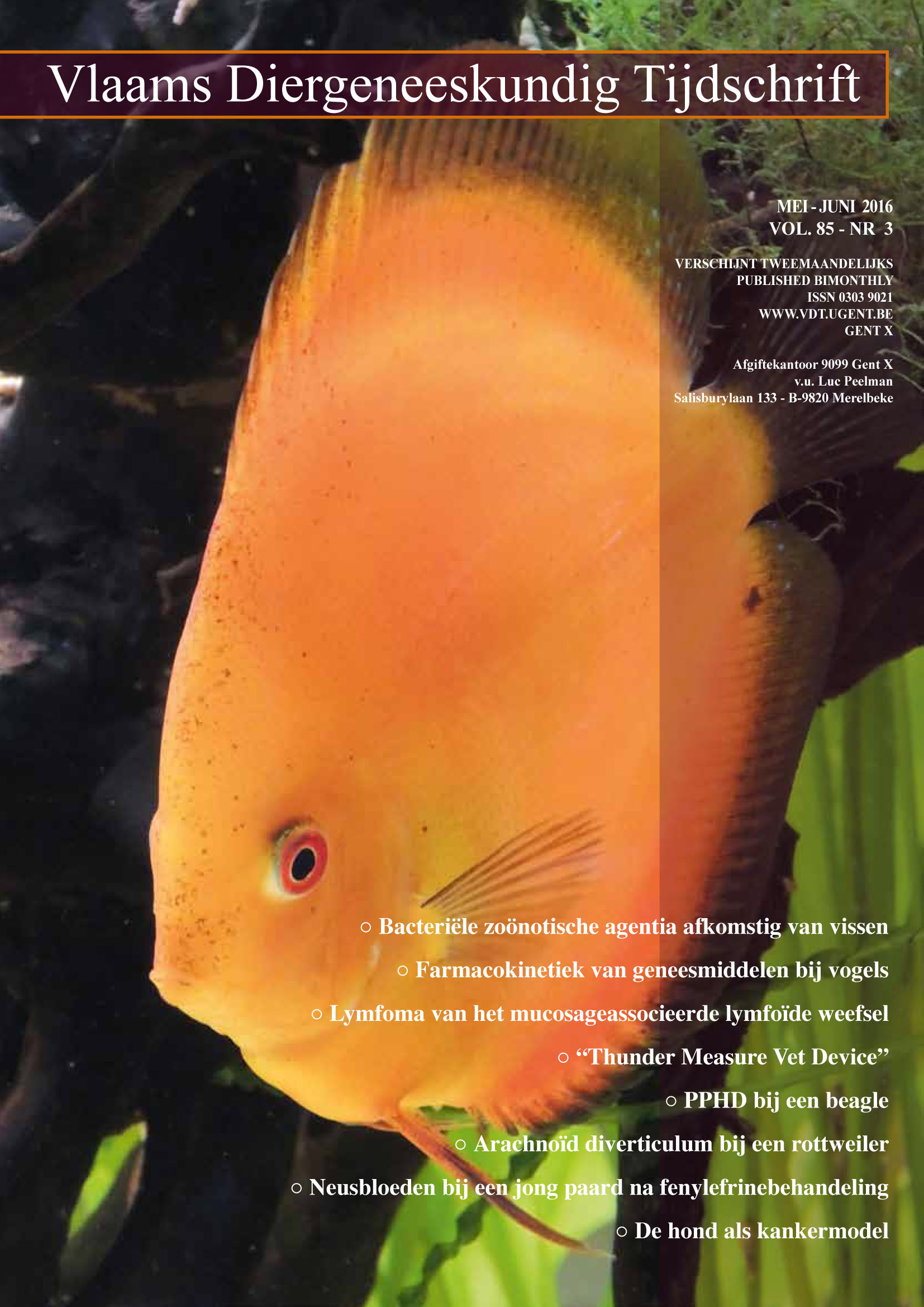Pet dog cancer models in search of novel therapeutic alternatives
DOI:
https://doi.org/10.21825/vdt.v85i3.16344Abstract
In cancer research, rodent cancer models are a standard research tool. However, translation of cancer research data from rodent to man is far from optimal. Hence, it is recommended that the efficacy of novel cancer drugs is confirmed in higher animal species before human trials are initiated. Pet dogs with spontaneous cancer are the perfect candidates in every respect. Dogs share a similar histologic, biologic and genetic cancer background significantly closer than the relationship between rodent and man. Furthermore, the development and interaction between tumor, host and tumor microenvironment is comparable to those in humans. There are corresponding diagnostic and treatment options available for dogs and humans, while the progression of cancer in dogs is fast enough to obtain results within a reasonable period of time. Lastly, pet dogs have a broader access to clinical trials than humans, enabling extensive research opportunities. Moreover, the dog also benefits from participation in clinical studies, since these studies offer an additional treatment option, and hence an additional chance of being cured.Downloads
Published
2016-06-28
Issue
Section
Continuing Education


